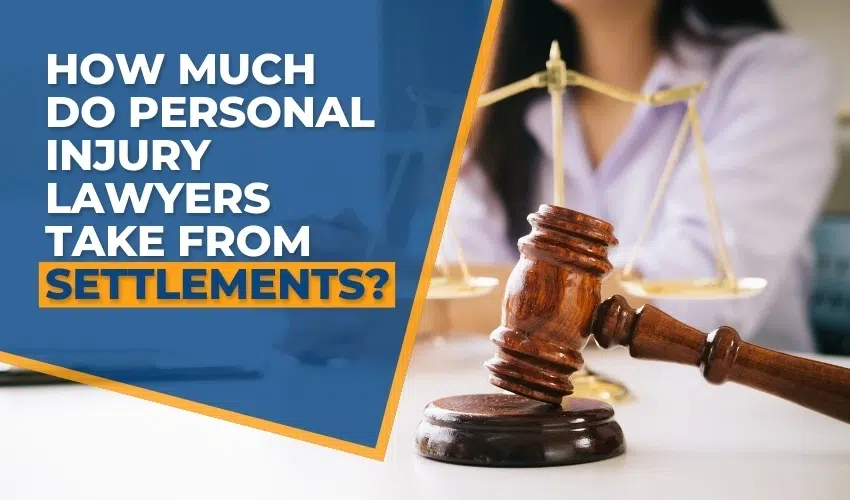When you’ve suffered a personal injury and are navigating the complex aftermath of an accident, one of the most common concerns is understanding how lawyers’ fees work in these cases. If you’re considering hiring a personal injury lawyer, you’re likely wondering how much of your settlement they’ll take and whether you’ll be left with enough to cover your needs. These are valid questions, and understanding the structure of legal fees can help you make informed decisions about your case.
The Basics of Contingency Fees
In personal injury cases, contingency fees are the most common payment arrangement. Unlike other areas of law where attorneys charge by the hour or require a retainer, personal injury lawyers take their fee from the final settlement or judgment. This means that if you don’t recover compensation, the lawyer doesn’t get paid. This approach aligns your interests with your attorney’s, as both of you are motivated to achieve the best possible outcome. It’s a system designed to make legal representation accessible to those who might not otherwise be able to afford it.
The percentage that a lawyer takes from your settlement varies but typically falls within a range. In many cases, this range is between 25% and 40%. The exact percentage depends on a variety of factors, including the complexity of your case and whether it settles before or after going to trial. For example, cases that require extensive investigation, testimony from professionals, and courtroom proceedings may result in a higher fee due to the additional time and resources involved.
What Influences the Percentage?
Several factors determine the contingency fee percentage:
- Case Complexity: Simpler cases with clear liability often have lower fees, while complex cases involving disputes over fault or significant damages may require more resources and result in higher percentages.
- Trial vs. Settlement: Cases that settle through negotiation with the insurance company may have lower fees compared to cases that go to trial, which demand more time and preparation.
- Resources Required: If the case involves professional testimony, depositions, or other significant expenses, the fee structure may reflect these additional costs.
Understanding Expenses and Costs
In addition to the lawyer’s contingency fee, there are other costs associated with pursuing a personal injury claim. These expenses may include court filing fees, costs for obtaining medical records, fees for professional witnesses, and charges for deposition transcripts. While some attorneys deduct these expenses from the settlement after calculating their fee, others deduct them before taking their percentage. This distinction can affect how much you ultimately receive, so we recommend clarifying this detail with your lawyer upfront.
Why Contingency Fees Benefit You
Contingency fee arrangements are designed to make legal representation accessible to everyone, regardless of financial status. Without the burden of paying upfront fees, you can focus on your recovery while your attorney handles the legal complexities. This structure also ensures that your lawyer is motivated to work toward the best possible resolution of your case, as their payment is directly tied to the result they achieve for you.
For many people, the financial strain of an injury is already overwhelming. You may be facing medical bills, lost wages, and other unexpected expenses. Knowing that you don’t have to pay for legal representation unless you win your case provides a sense of security and allows you to pursue justice without added financial pressure.
The Importance of Transparency
When working with a personal injury lawyer, it’s crucial to have a clear understanding of the fee structure. Here are the key questions you should ask during your initial consultation:
- What is the percentage fee range? Understand whether the percentage changes if the case goes to trial.
- How are expenses handled? Clarify if costs are deducted before or after the attorney’s percentage is calculated.
- What are potential additional costs? Ask about fees for professionals, filings, or other related expenses.
What to Consider When Choosing a Lawyer
When selecting a personal injury lawyer, we recommend considering more than just their fee percentage. Communication, an attorney’s ability to explain complex concepts clearly, and their approach to handling cases like yours are important factors to evaluate during your consultation. Discussing their strategy and approach will give you a better understanding of how they will advocate for your needs.
It’s also worth noting that the contingency fee arrangement allows you to access legal services without upfront costs. This means you can choose an attorney who is qualified to handle your case based on their approach and the trust they inspire, rather than being limited by immediate financial resources.
What This Means for You
Understanding how personal injury lawyers are paid is an important part of the decision-making process when pursuing a claim. The contingency fee system is designed to level the playing field, giving you access to legal assistance without the worry of upfront costs. By discussing the details of your lawyer’s fee structure during your initial consultation, you can ensure that you’re fully informed and prepared to move forward.
While it’s natural to focus on how much of your settlement will go toward legal fees, it’s equally important to consider the value your attorney brings to your case. From navigating complex legal procedures to negotiating with insurance companies and advocating for your rights, a personal injury lawyer can make a significant difference in the outcome of your claim. Their role is to help you secure compensation that reflects the impact of your injuries on your life.
Moving Forward
If you’re feeling uncertain or overwhelmed by the legal process, know that you’re not alone. Personal injury cases can be complex, but understanding the basics of contingency fees and legal costs can help you feel more confident as you take the next steps. By working with an attorney who is transparent about their fees and committed to your best interests, you can focus on your recovery while they handle the legal challenges.
Remember, every case is unique, and the specific terms of your agreement will depend on your circumstances and the details of your claim. Taking the time to ask questions, review your options, and choose the right lawyer for your case can make all the difference in achieving a fair and just resolution.



